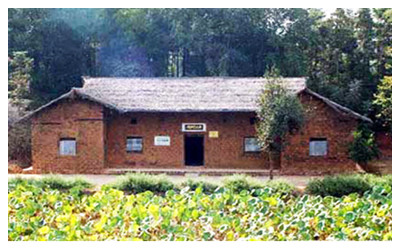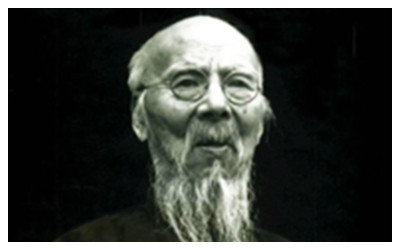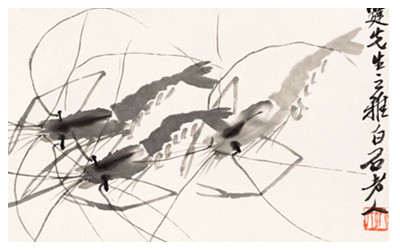
Qi Baishi's Former Residence
 The Former Residence of Qi Baishi, a famous master of traditonal Chinese painting, is situated in Baishipu, Xiangtan County. The house consists of earthen walls and a thatched roof. In the memorial hall, the paintings, wooden carvings, seals, poems and artides (articles) by Qi Baishi are on display in addition to his stationeries and utilities for daily use.
The Former Residence of Qi Baishi, a famous master of traditonal Chinese painting, is situated in Baishipu, Xiangtan County. The house consists of earthen walls and a thatched roof. In the memorial hall, the paintings, wooden carvings, seals, poems and artides (articles) by Qi Baishi are on display in addition to his stationeries and utilities for daily use.
About Qi Baishi
Qi Baishi (1864-1957) also known as Qi Huang or Qi Weiqing, was born in 1863 in Xiangtan County, Hunan Province. He is perhaps the most noted contemporary Chinese painter, famed for the whimsical, often playful style of his watercolour works. Born to a peasant family from Xiangtan, Hunan Province, Qi became a carpenter at 14, and learned to paint by himself. After he turned 40, he travelled, visiting famous scenic spots in China.
 After 1917 he settled in Beijing. In his later years, he continued to make "later-year innovations." Some of Qi's major influences include the early Qing Dynasty painter Bada Shanren (or Zhu Da) and the Ming Dynasty artist Xu Wei.
After 1917 he settled in Beijing. In his later years, he continued to make "later-year innovations." Some of Qi's major influences include the early Qing Dynasty painter Bada Shanren (or Zhu Da) and the Ming Dynasty artist Xu Wei.The subjects of his paintings include almost everything, commonly animals, scenery, figures, toys, vegetables etc. He theorized that "paintings must be something between likeness and unlikeness, much like today's vulgarians, but not likely to cheat popular people". In Baishi's early twenties he had created a saying to keep himself motivated. It reads: "In speech, use language that people can understand." In his later years, many of his works depict mice, shrimp, or birds. He was also good at seal carving and called himself "the fortune of three hundred stone seals". What is unique about Baishi is that all of his works
 show no western influences which was unusual for an artist at this time. Other artists praised Baishi for the "freshness and spontaneity that he brought to the familiar genres of birds and flowers, insects and grasses, hermit-scholars and landscapes". Even though Baishi was not the first artist to focus on small things in nature, he was recognized for his very careful and beautiful way of painting such common images.
show no western influences which was unusual for an artist at this time. Other artists praised Baishi for the "freshness and spontaneity that he brought to the familiar genres of birds and flowers, insects and grasses, hermit-scholars and landscapes". Even though Baishi was not the first artist to focus on small things in nature, he was recognized for his very careful and beautiful way of painting such common images.In 1952 he was appointed Honorary Professor of the Central Academy of Fine Arts, Beijing.In 1953 he was elected to be president of the Association of Chinese Artists at the Second National Congress of Writers and Artists. In the same year the Ministry of Culture of the People's Republic of China conferred on him the honorable title of "People's Artist." In 1954 he was deputy of the First National People's Congress. In 1955 he was awarded the World Peace Prize by the World Peace Council.
Qi Baishi Memorial Hall
Qi Baishi Memorial is a themed museum to remember Chinese famous artist Qi Baishi. The architecture of the memorial is like the civilian residence of southern China. It is delicate and elegant.
Tel :(86)732-58257853
Opening hours: 8:30 -17:00






 Ask Questions ?
Ask Questions ?